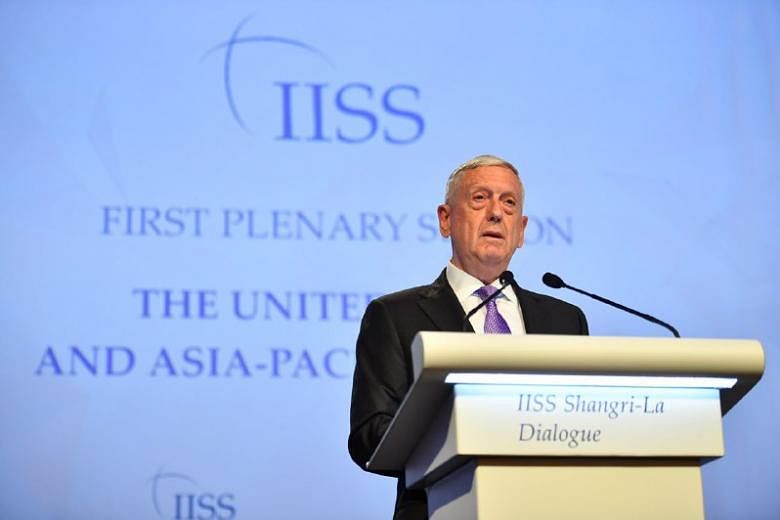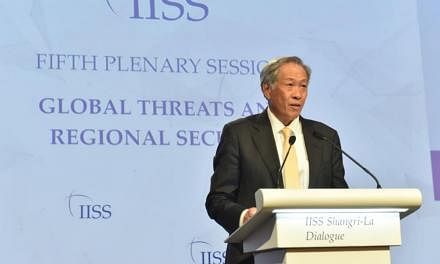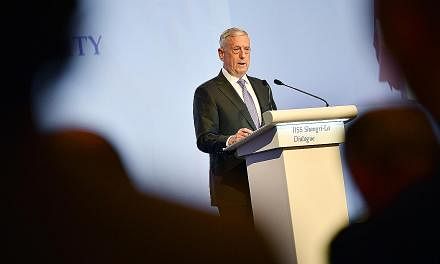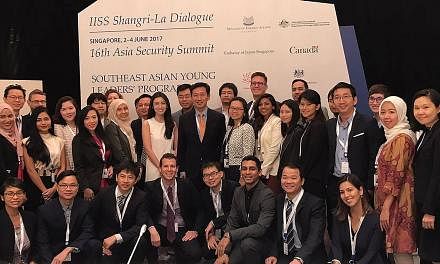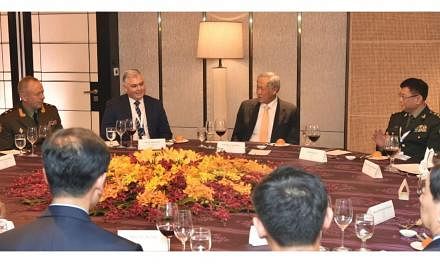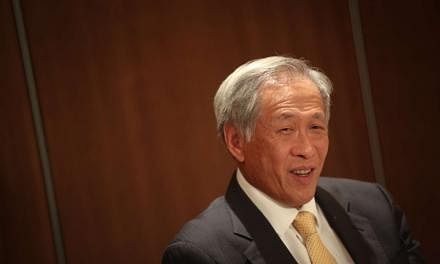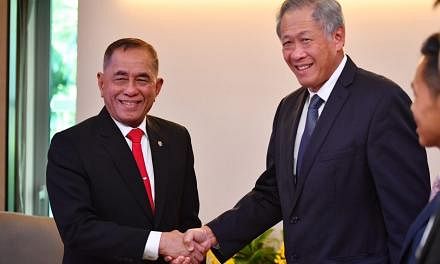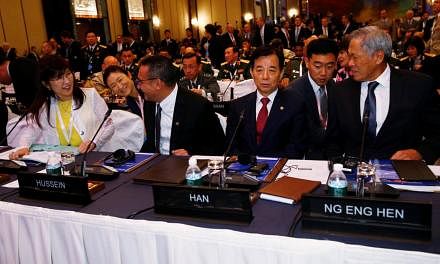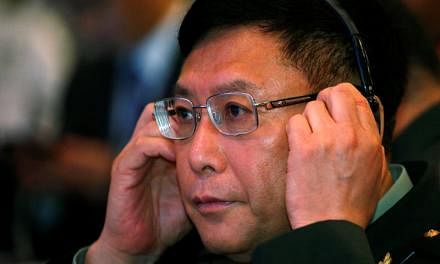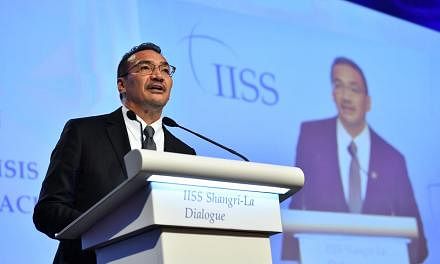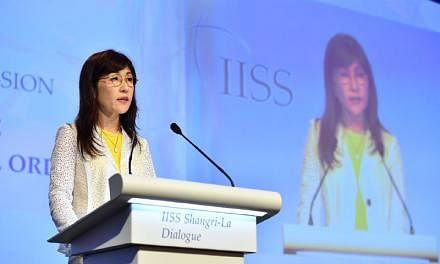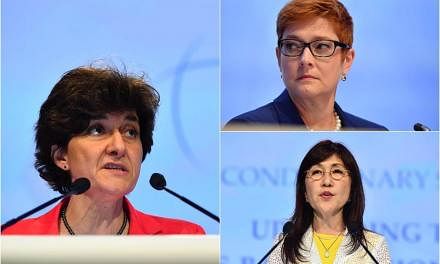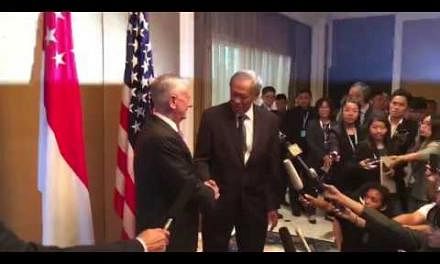SINGAPORE - The United States seeks a constructive relationship with China but cannot accept its actions that undermine the rules-based order in the Asia-Pacific region, US Defence Secretary James Mattis said on Saturday (June 3).
Mr Mattis also reassured countries in the region of the US' "enduring commitment" to the security and prosperity of the region, assuaging anxieties of a US that is less committed to the Asia-Pacific after President Donald Trump pulled out of the Trans-Pacific Partnership trade deal in January.
Speaking at the first plenary session of the Shangri-La Dialogue, an annual security summit, he also highlighted the threat that North Korea's nuclear weapons programme posed to the region and the responsibility of all in the region, particularly China, to work towards the denuclearisation of the Korean Peninsula.
Mr Mattis acknowledged the rivalry between his country and China but said that this need not lead to conflict.
"While competition between the US and China, the world's two largest economies, is bound to occur, conflict is not inevitable. Our two countries can and do cooperate for mutual benefit," he said.
"We seek a constructive, results-oriented relationship with China. We believe that the United States can engage China diplomatically and economically to ensure our relationship is beneficial - not only to the United States and China - but also to the region and to the world."
However, he also said: "We cannot accept Chinese actions that impinge on the interests of the international community, undermining the rule-based order that has benefited all countries represented here today including, and especially, China."
He pointed to what he called the nature of China's militarisation, China's "blatant disregard for international law", its "contempt for other nations' interests" and its efforts to dismiss "non-adversarial resolution of issues".
While all countries should have a voice in shaping the international system, he said, if this is done by ignoring or violating international law, then it threatens all that the inclusive global community has built together in the last 70 years.
While Mr Mattis said the US would continue to strengthen its alliances in the region, he also called on "all countries to contribute sufficiently to their own security", a familiar refrain of the Trump administration now.
The three-day summit comes at a time of uncertainty in the region as rivalry increases between the two great powers in the region, leading to worry among some countries about having to take sides.
